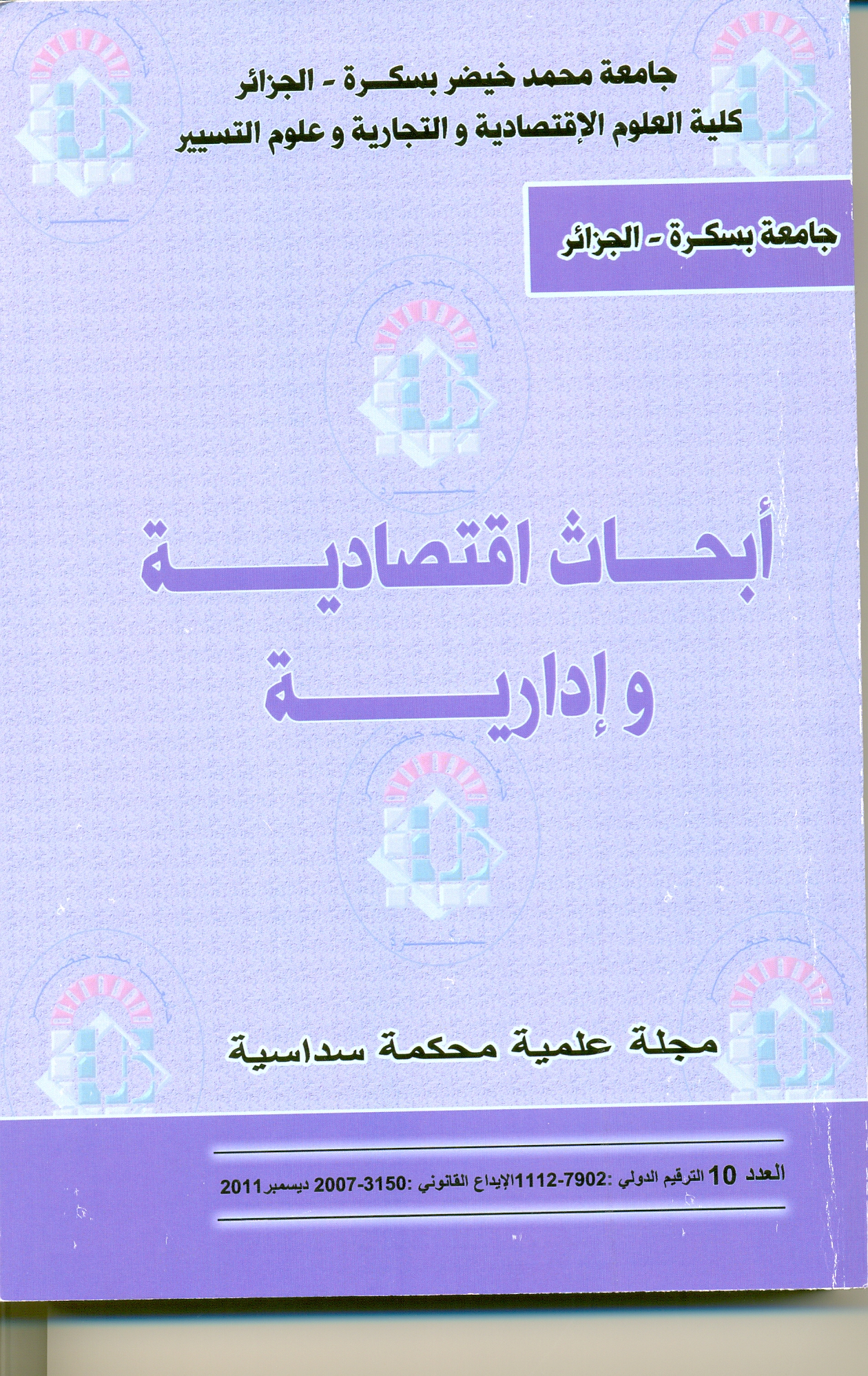أثر الاستثمار في تكنولوجيا المعلومات على تحسين الأداء المؤسسي: دراسة حالة مؤسسة المناطق الحرة الأردنية
Résumé
تتناول هذه الورقة نتائج دراسة معمقة لحالة مؤسسة المناطق الحرة الأردنية، منذ مباشرتها الاستثمار في تكنولوجيا المعلومات، وأثر ذلك على أدائها. وقد غطت الدراسة سلسلة زمنية للسنوات 1996-2005. وتم قياس "الاستثمار في تكنولوجيا المعلومات" من خلال المبالغ المخصصة، والمبالغ المنفقة فعلياً، ورواتب العاملين في وحدة تكنولوجيا المعلومات، كما تم قياس الأداء بتسعة أهداف حددتها المؤسسة في خطتها الإستراتيجية وبمعدل ثلاثة أهداف لكل من: مدخل تحقيق الأهداف، وتحسين العمليات الداخلية، وتحسين الحصول على الموارد. واعتمدت الدراسة على بيانات رسمية والمقابلة. وقد أظهرت النتائج بأنه كان للاستثمار في تكنولوجيا المعلومات - والذي تجاوز المليون دولار أردني ($1390.000)- تأثير إيجابي على كافة الأهداف، باستثناء هدف "تحسين العائد على الكلفة"، وهي نتيجة تستدعي دراسات لاحقة بسبب أهمية هذا الهدف. كما ألقت الضوء على مجموعة مشكلات مهمة للمؤسسات العامة الأخرى في الدول النامية، منها: ضعف عمليات توثيق البيانات المهمة، وضعف عمليات التخطيط، وتأثر التخصيصات السنوية بسياسات وقتية لخفض الإنفاق، وعدم تحديد أهداف كمية، واستمرار خضوع المؤسسة للقوانين والأنظمة الحكومية على الرغم من استقلالها المالي والإداري.
Abstract
This paper presents the results of an in-depth case study of the Jordanian Free Zones Corporation during the period 1996-2005 when it started investing in Information Technology (IT). “Investment in Technology” was measured by the total allocations and expenditures, plus the salaries of employees in the IT department. Organizational Performance was measured by the achievement of nine goals set in its Strategic Plan, three from each of the Goal Achievement, Internal Processes, and Resource approaches. The study used formal data & interview. Results revealed that the over one million Jordanian Dinar ($1.390.000) investment in IT had a positive impact on the achievement of all goals except “the return on cost” which is a result that requires further research, given its importance. It also drew attention to other problems of relevance to Public Enterprises in the Developing Countries, mainly: the poor documentation of important data, problems with planning, allocations impacted by sporadic policies of reducing spending, setting of goals in generalities rather than quantitatively, as well as the continuing use of governmental procedures and regulations despite becoming an independent entit

